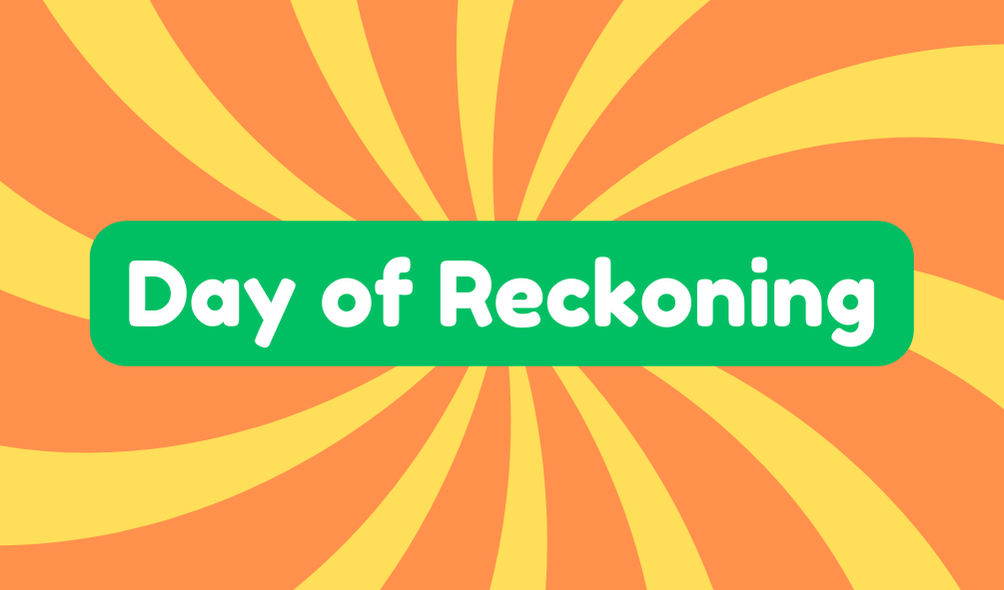The "day of reckoning" signifies a time when you must face the consequences of your actions. Originating from biblical references, it represents a moment of moral accountability that resonates today. For example, individuals might experience a day of reckoning after a series of poor choices leads to personal or financial crisis. It emphasizes the weight of decisions, reminding us that neglecting this truth can have serious repercussions. In contemporary discussions, it highlights societal demands for transparency and responsibility. If you think this matters, there's more to uncover about its impact and relevance in our lives.
Synonyms
When you think about the term "day of reckoning," several synonyms may come to mind that capture its essence. Understanding these alternatives can help you grasp the full impact of this concept, which often involves facing uncomfortable truths. Here are a few synonyms to contemplate:
- Judgment day
- Moment of truth
- Time of reckoning
These phrases reflect the reality of moral accountability and the consequences faced for past actions. They emphasize the inevitable moment when individuals confront their errors, whether it be financial irresponsibility or ethical lapses. You might reflect on how these synonyms resonate in your own life, prompting contemplation on decisions made and the responsibility that comes with them. Each term carries a weight that serves as a reminder, urging you to think about your actions today.
Example of Sentences
The concept of a day of reckoning is often illustrated through real-life scenarios that underscore its significance. It's essential to grasp how moral accountability plays a role in our lives. Here are some examples that highlight this idea:
- Reckless students face the music when grades plummet.
- Tax cheats confront serious repercussions as regulations tighten.
- Officials brace for auditors, knowing societal consequences await.
These instances show that ignoring actions can lead to inevitable reckoning moments. It's about realizing the weight of decisions made, not just for individual wellbeing, but also for society at large. Ultimately, understanding these examples helps you appreciate the need for accountability, reminding you that every choice carries potential fallout.
Origin
Many people don't realize that the phrase "day of reckoning" has deep roots in biblical context, particularly in Christian beliefs about the Day of Judgment. This concept isn't just spiritual; it tackles historical precedents that demand accountability for one's actions throughout time. People have connected the phrase with moral implications, emphasizing that we're all responsible for our deeds. It signifies a moment where you can't hide from the consequences of past mistakes. Though made prominent in the 19th century—thanks to literary figures like Charles Dickens—its origins resonate deeply with the ethical expectations society holds today. As you engage with this phrase, consider how it reflects our ongoing struggle with responsibility in personal and societal contexts.
Collocations
Various collocations enhance the phrase "day of reckoning," making it versatile in different contexts. By using specific terms, you can emphasize moral accountability and highlight societal consequences. Consider these combinations:
- Day of reckoning for financial misdeeds
- Personal day of reckoning
- Day of reckoning in politics
These collocations not only deepen the phrase's meaning but also provide a clear lens through which to examine accountability. When you choose your words carefully, you convey the urgency of facing past actions. It's essential for society to recognize that ignoring these moments of truth can lead to larger consequences. A robust dialogue around these collocations encourages individuals to reflect on their choices and the inevitable reckoning that follows.
How to Use in Everyday Language
When you talk about accountability, incorporating the phrase "day of reckoning" can effectively highlight the significance of facing consequences for one's actions. This phrase captures the essence of moral accountability, emphasizing the inevitable moment when individuals confront the outcomes of their choices. You might say, "On their day of reckoning, the team faced consequences for ignoring ethical standards." Using it in everyday language promotes a deeper understanding that actions have repercussions. It encourages you to think critically about the choices you make and the impact they have on others. Remember, we all have our own days of reckoning; recognizing this can lead to more thoughtful decisions and a more responsible outlook on life.
Why Is It Still Relevant Today?
The concept of the "day of reckoning" remains highly relevant today as individuals and societies grapple with increasing accountability for their actions. With growing calls for moral accountability, you're facing the challenge to reflect on your choices and their impacts. In a world where transparency is demanded, whether in politics, business, or daily life, the idea of a reckoning is ever-present. Ignoring past mistakes won't shield you from future consequences. This societal reflection is essential, pushing you to contemplate the long-term effects of your actions—not just on yourself, but on the community as a whole. As the consequences of inaction reveal themselves, it's clear that the day of reckoning isn't just a phrase; it's a significant part of our moral landscape.







